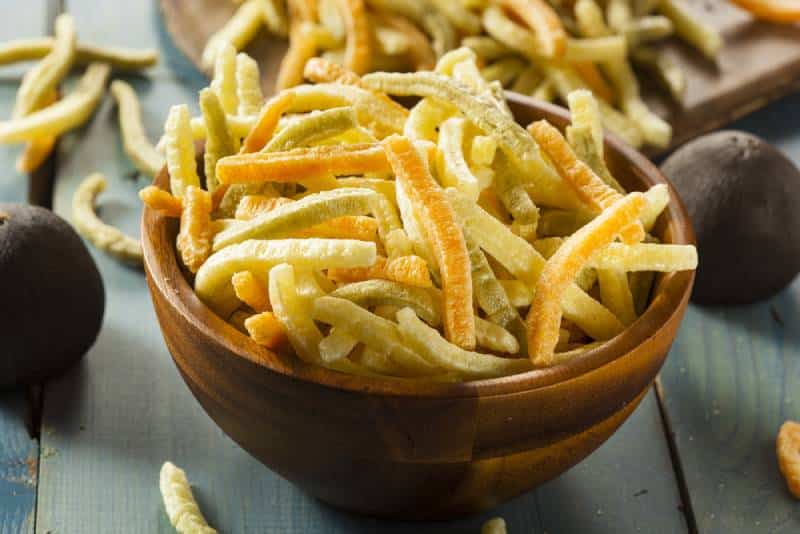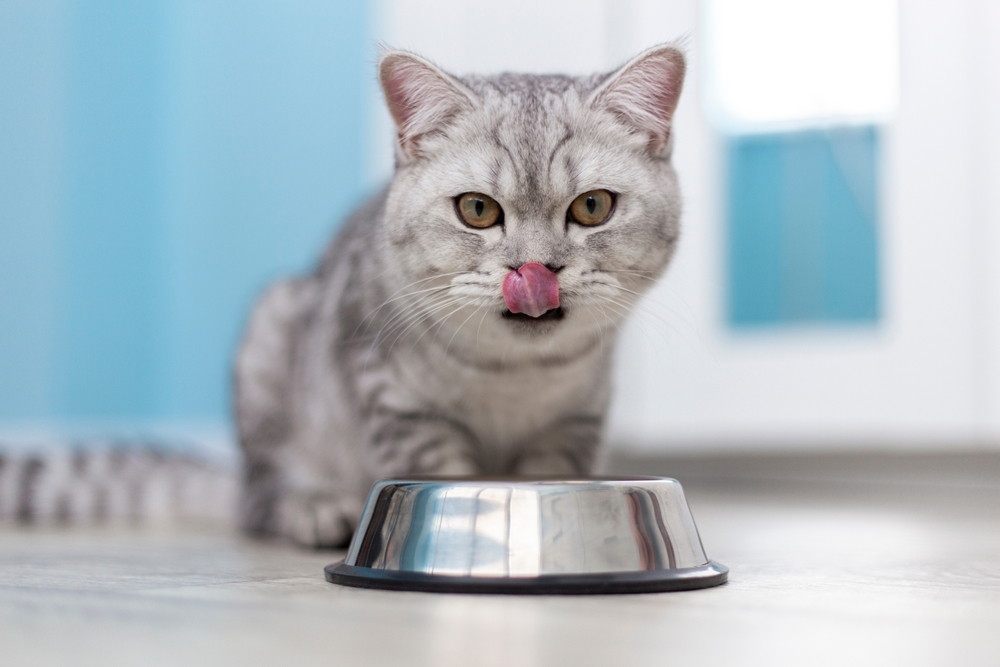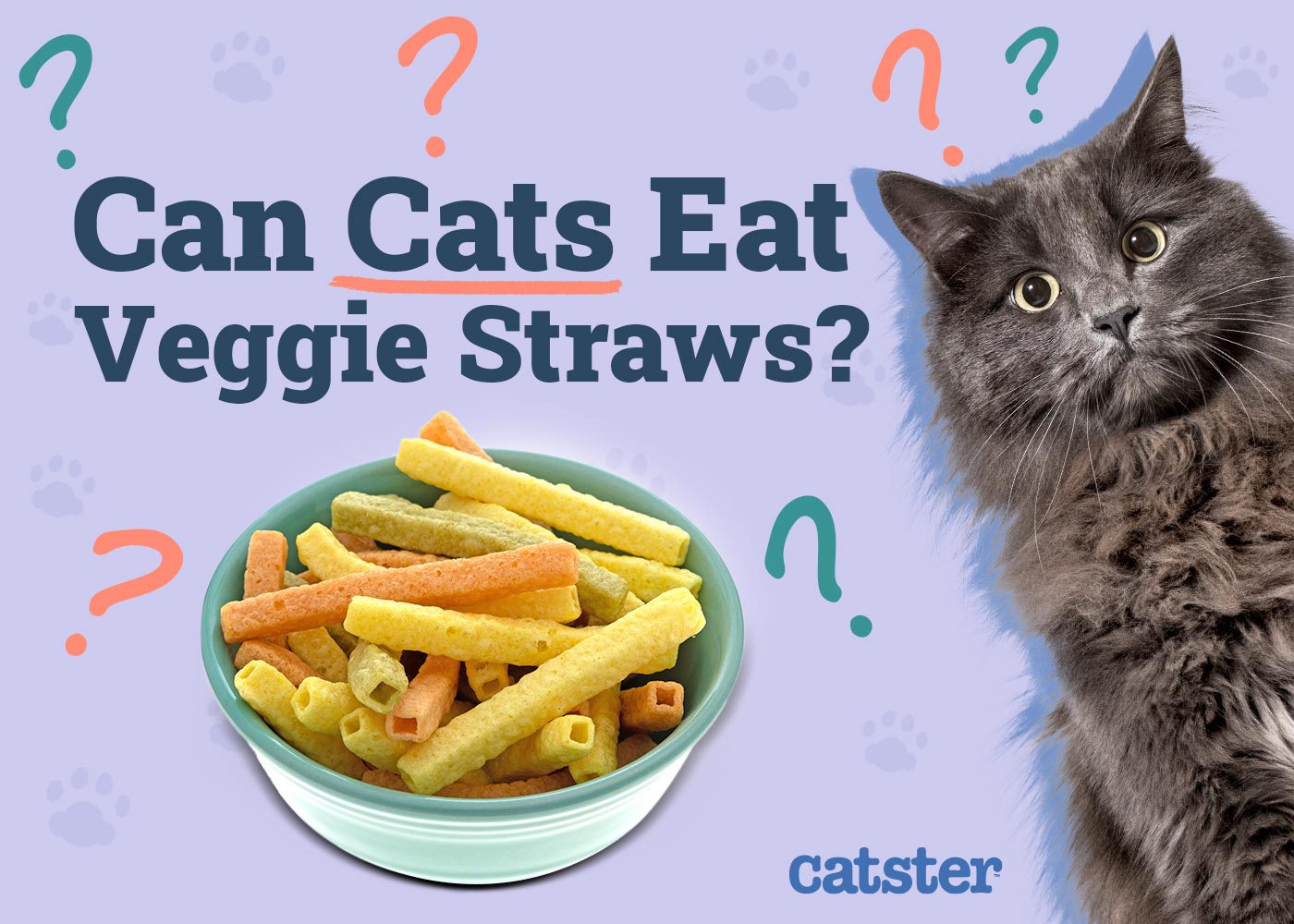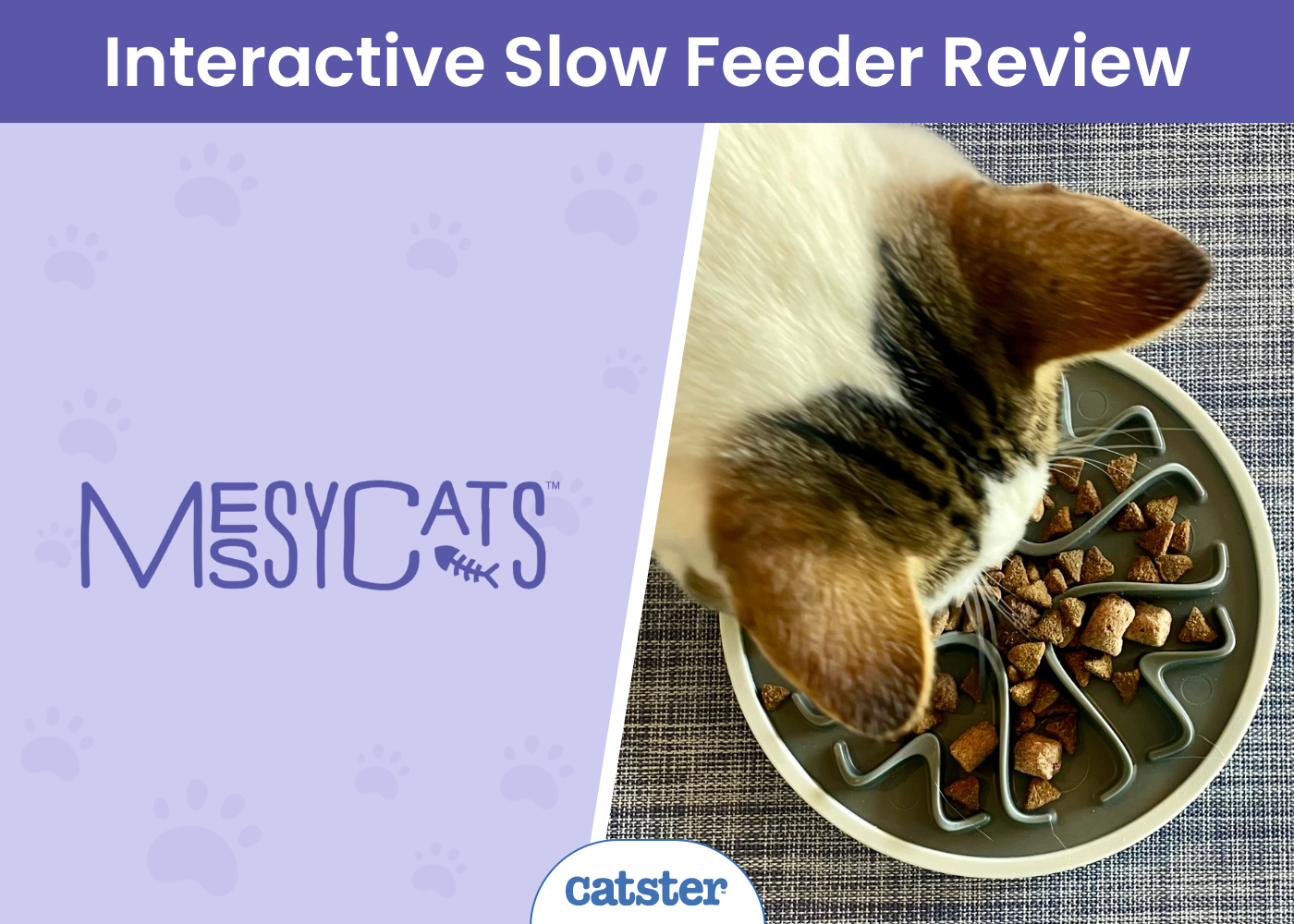Human treats aren't typically "healthy". The average potato chip is full of fat, oil, salt, artificial additives, and has no nutritional value. Enter Veggie Straws, a crispy vegetable snack shaped like a short straw, seemingly a healthy alternative to regular chips. Pet parents may wonder if Veggie Straws are okay for their cats.
With their amazing sense of smell, cats can easily detect something delicious to eat. Sadly, cats should not eat Veggie Straws or any other processed human treat.

What Are Veggie Straws?
Veggie Straws are a potato-based "vegetable chip" marketed as a healthy snack for humans. They're said to be a fun way to add veggies to our diet with less fat than regular chips. But looking at their ingredients, these claims are a bit overstated.
- Potato flour
- Potato starch
- Corn starch
- Tomato paste
- Spinach powder
- Salt
- Sugar
- Beetroot powder
- Turmeric
- Sea salt
- Oil (canola, sunflower, and/or safflower oil)
None of these ingredients are useful in an obligate carnivore's diet.
For humans, a single serving of Veggie Straws (68 straws/50 g) has 250 calories, 14 grams of fat (22% RDA), 430 mg of salt (18% RDA), and small amounts of vitamins and minerals. They may be "healthier" than average snacks, but far from a great way to get more veggies.

Can My Cat Eat Veggie Straws?
No, cats can't eat Veggie Straws. The Sea Salt and Cinnamon Apple flavors are non-toxic, but all other recipes contain toxic ingredients. Many flavors have onion and garlic powder, which are toxic to cats. Also, the milk and cheese in many flavors can upset a cat's stomach as many adult cats are dairy intolerant.
These products are high in sodium, starches, sugar, and oils. They're higher in fat and calories than many feline-safe treats. And they have less than 1 g of protein per 28 g serving, while cats need a protein-rich diet. Feeding Veggie Straws regularly can cause weight and mobility problems for cats.
If your cat eats a Veggie Straw, check the package for onion or garlic. If either is listed, contact your vet right away.
If you need to talk to a vet but can't reach one, go to PangoVet. It's an online service where you can chat with a vet online and get pet advice at an affordable price!

What Treats Can I Feed Instead of Veggie Straws?
There are many options to give your cat as a treat, including some human foods that are safe and healthy. Try choices from the list below, not all at once! Avoid those that may cause allergies or intolerance. Remember, cat treats should only be about 10% of their daily calorie intake.
Always check with your vet that the food is safe for your cat's health.
- Treats from stores for cats
- Plain grilled or cooked chicken
- Plain cooked turkey
- Cooked fish, especially salmon or oily fish
- Canned tuna in water
- Eggs
- Bananas
- Blueberries
What Is a Healthy Diet for Cats?

Cats are obligate carnivores. They must get protein from animal meat, not plants. They have extra nutritional needs compared to dogs, humans, etc., which are:
- Taurine: An essential amino acid only in animal meat protein.
- Arachidonic Acid: An essential fatty acid from animal sources.
- Arginine: An essential amino acid from animal meat.
- Vitamins A, D and Niacin: Cats can't synthesize these vitamins well and need them from animal tissues.
So, cats must eat animal meat and can't be fed vegetarian or vegan diets. These extra nutrients can't be added as supplements either. Without taurine, arginine, and arachidonic acid, cats can have serious health problems and may die.
Cats also need much less carbohydrates than humans and dogs and get most of their energy from proteins and fats.
They need high-quality, age-appropriate complete cat food for a long, healthy life.

Conclusion
There are many safe foods for cats as treats. While the number of treats should be limited, there are tasty options that are also quality, safe, and healthy. Veggie Straws are not a and should be avoided.
If you've been feeding your cat Veggie Straws and are worried about their health, talk to your vet or a veterinary nutritionist for advice.
- https://www.vet.cornell.edu/departments-centers-and-institutes/cornell-feline-health-center/health-information/feline-health-topics/feeding-your-cat
- 5-tips-picking-out-treats-cats-32076
- https://www.purina.co.uk/articles/cats/feeding/what-cats-eat/can-cats-eat-potatoes
- https://www.sensibleportions.com/product/garden-veggie-straws/?productVariation=1
- https://www.petmd.com/cat/nutrition/do-cats-need-high-protein-cat-food#
- https://www.vin.com/apputil/content/defaultadv1.aspx?id=3843764&pid=8708&print=1
- https://www.medicinenet.com/sugar_addiction_pictures_slideshow/article.htm
- https://www.medicinenet.com/corns/article.htm
- https://www.sensibleportions.com/product/garden-veggie-straws/?productVariation=1
Featured Image Credit: Le Do, Shutterstock


